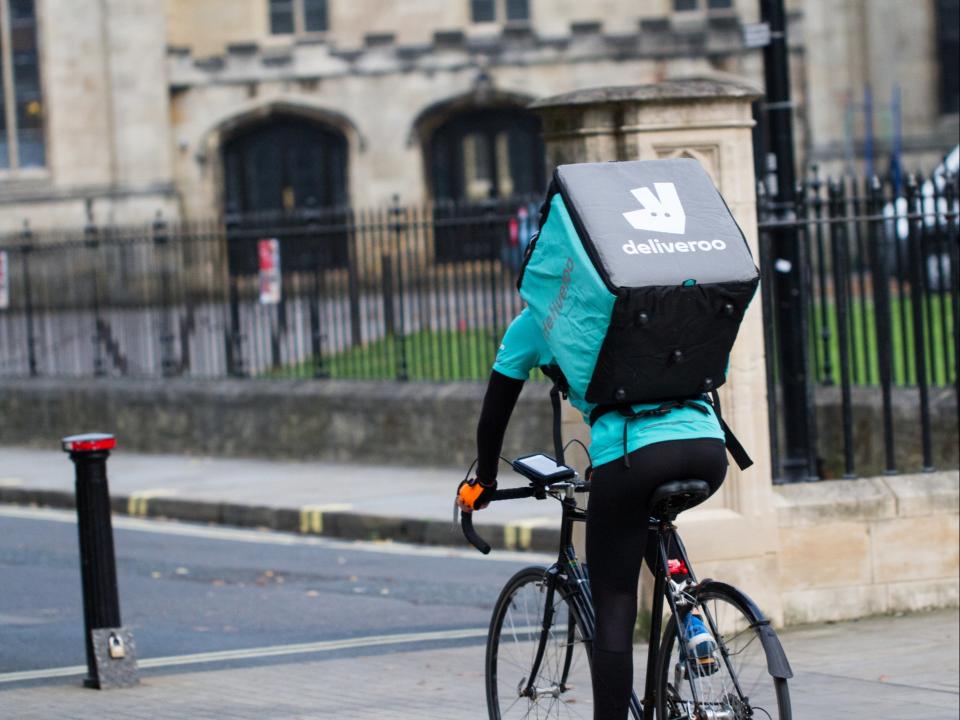Deliveroo riders to be trained to spot domestic abuse

Deliveroo riders can now take part in training to help them spot domestic abuse and signs of human trafficking while making food deliveries.
The optional training, which has been developed by the Neighbourhood Watch network and verified by the Metropolitan Police force, also offers courses on how to spot the signs of street harassment and modern slavery.
Additionally, riders can receive bystander training, to learn how to handle confrontation and how to ensure female safety on the street.
The food delivery service said the pandemic has highlighted Deliveroo riders as “vital” in their local communities and they are well-placed to spot any concerns in the local areas in which they work.
“We don’t just want to be seen in our communities; we want to be part of them and play a role in keeping them safe,” Will Shu, CEO and founder of Deliveroo said, adding that female safety is a “particular focus” for the company.
One female Deliveroo rider, Alexandra Ramosova, said couriers often see people in need of help but aren’t sure how best to do so: “Riders are in a unique position as we’re out riding on the street and may see things others don’t.
“We have the ability to help but sometimes aren’t sure how best to do so. This training will allow us to better support our community and one another. Training like this gives people the confidence to make a difference,” she said.
But the scheme has been criticised by the Independent Workers’ Union of Great Britain (IWGB) – whose members include Deliveroo riders – which said it “ignores the abuse” riders deal with every day.
In April, Deliveroo workers went on strike calling for better pay and working conditions. IWGB, which organised the protest, said one of their key demands was an improvement to the safety of workers, who regularly face abuse from both customers and restaurants.
Following the onset of the pandemic, the IWGB surveyed more than 100 of its members who are couriers, finding that eight in 10 feel unsafe at work and have experienced either verbal or physical assault.
“Deliveroo has distorted this demand and has now got its riders doubling up as informants,” Alex Marshall, president of IWGB and former courier told The Independent, adding that Deliveroo is “shying away from the responsibility of looking after its workforce”.
“Rider safety is super important and public safety is too, but to try and get workers who aren’t even being fully compensated in pay to shoulder this next burden potentially puts them at a higher risk,” Marshall said.
In response to IWGB’s comments, Deliveroo said its new bystander training was one of the demands listed by IWGB - and 1000 Deliveroo riders have already signed up to take part.
The food delivery company highlighted that all of the courses are optional. It said they are “designed to help keep riders safe and also support the local community in which they work and live – something the IWGB have personally called for”.
Anyone who requires help or support can contact the National Domestic Abuse Helpline which is open 24/7 365 days per year on 0808 2000 247 or via their website nationaldahelpline.org.uk.
Read More
Who even are we without internet access?
‘I know it’s irrational’: Could treating needle phobia reduce Covid vaccine hesitancy?

 Yahoo Finance
Yahoo Finance 